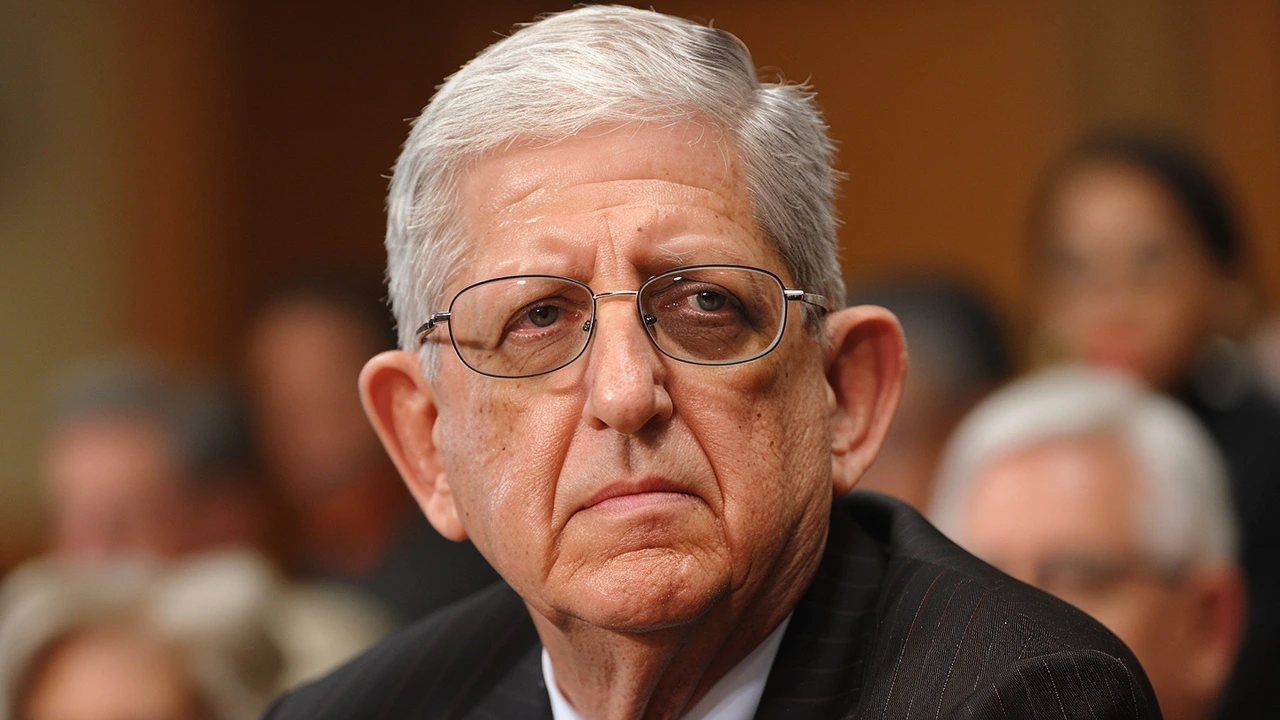Republicans Vote to Hold Merrick Garland in Contempt of Congress
In a rare occurrence within the political framework of the United States, the House of Representatives voted on Wednesday to hold Attorney General Merrick Garland in contempt of Congress. This action came after allegations that Garland had withheld crucial audio recordings pertinent to President Joe Biden's handling of classified documents. The contentious move is emblematic of the escalating partisan divide surrounding this issue, as Republicans intensify their investigation into the matter.
The central figure in this unfolding drama is Robert Hur, the special counsel tasked with examining President Biden's procedures concerning classified material. Despite Hur's decision not to pursue any charges against Biden, Republicans remain unsatisfied. The impetus behind the contempt vote stems from Garland's purported failure to fully comply with a subpoena issued by two prominent House committees: the Judiciary Committee and the Oversight and Accountability Committee. These committees are helmed by Ohio Representative Jim Jordan and Kentucky Representative James Comer, key players in the Republican effort to scrutinize the administration.
The Demand for Transparency
At the heart of this dispute lies the contested audio of Hur's interviews with President Biden. The House committees demanded that the Justice Department hand over these recordings by early April. However, the Justice Department only partially fulfilled this request, omitting the audio of the Biden interview. Their reasoning was rooted in the potential ramifications for future investigations, should such sensitive material be made public.
This selective compliance precipitated a standoff. When the deadline to adhere to the subpoena arrived, the White House intervened by invoking executive privilege. The administration argued that Republicans sought the recordings for political gain, aiming to exploit the information rather than pursue genuine oversight.
Consequences of Contempt
Holding an official in contempt of Congress is not a mere symbolic gesture. It is a misdemeanor criminal offense that grants lawmakers the authority to enforce their subpoenas. The House approved the contempt resolution by a vote of 216-207, recommending that Garland face prosecution. This referral will now be sent to the Justice Department, the very institution Garland oversees.
Recent history provides a precedent for such actions. Allies of former President Donald Trump, including Steve Bannon and Peter Navarro, faced similar contempt resolutions which served as the foundation for legal proceedings. Should the Justice Department decide to pursue a case against Garland, he could face significant penalties. These could range from fines amounting to $100,000 to imprisonment for a term of up to 12 months.
Historical Context
Garland's predicament places him in a small, unenviable cohort of U.S. Attorneys General who have faced contempt of Congress charges. Before him, only two others had encountered such repercussions. This development underscores the gravity of the situation and the intensity with which the Republicans are pursuing their investigation.
The broader context of this controversy can be traced back to the heightened scrutiny over the handling of classified documents by high-ranking officials. This issue has become a focal point within the political discourse, often generating significant media attention and public interest. In the era of hyper-partisan politics, actions that might have once been seen as procedural or bureaucratic are now laden with potential political ramifications.
Implications for the Future
The decision to hold Garland in contempt could have far-reaching implications. It sets a precedent for how Congress asserts its oversight authority and how the executive branch responds. The invocation of executive privilege by the White House to block the release of the contested audio adds another layer of complexity to the constitutional tussle between the legislative and executive branches.
Moreover, this move may influence future interactions between Congress and the Justice Department. The willingness of lawmakers to employ contempt charges as a tool of enforcement could alter the dynamic of compliance and accountability in Washington. It raises the question of how future administrations will navigate such demands and the potential consequences of non-compliance.
A Divisive Vote
The vote to hold Garland in contempt highlighted the deep partisan divides within the House of Representatives. The near-party-line vote of 216-207 reflected the broader political polarization that has characterized much of the current legislative session. Republicans have championed the need for transparency and accountability, while Democrats have decried the move as a politically motivated effort to undermine the Biden administration.
As this story continues to unfold, it will likely serve as a barometer for the state of inter-branch relations in the United States. The outcome of Garland's case, and the manner in which both Congress and the Justice Department handle the contempt resolution, will be scrutinized closely. This could set a lasting precedent for future conflicts between the branches of government, influencing how subpoenas and executive privilege are navigated in the years to come.
Conclusion
The House of Representatives' decision to hold Attorney General Merrick Garland in contempt of Congress is a momentous development within the landscape of U.S. politics. It underscores the intensifying partisan conflict and raises important questions about the balance of power and oversight mechanisms within the American political system. As the fallout from this decision reverberates, it will be crucial to monitor how it shapes the future of congressional oversight and executive accountability.






Write a comment